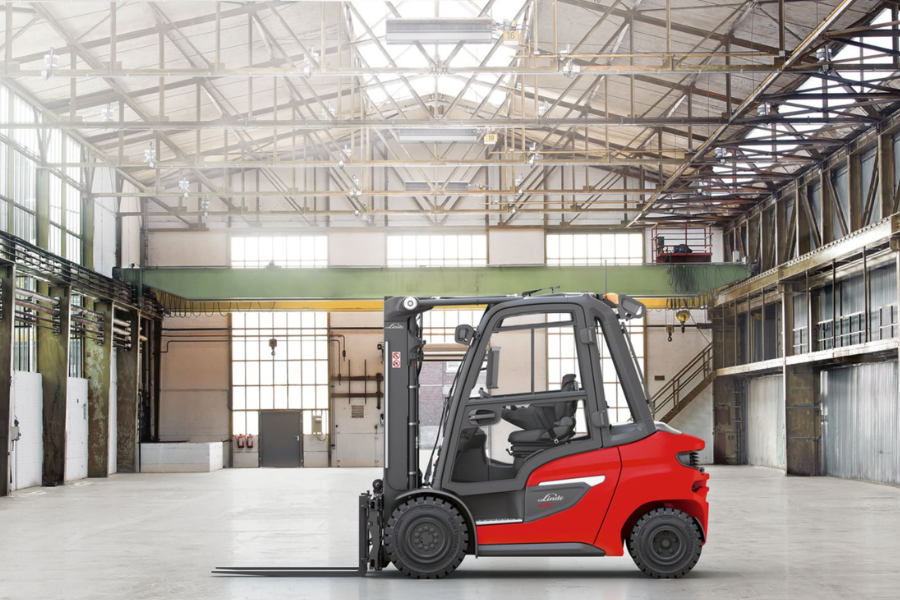HOW OFTEN SHOULD OPERATORS INSPECT THEIR FORKLIFT

In any warehouse or material handling setting, forklifts play a pivotal role in ensuring efficient operations—however, their reliability and safety hinge on regular inspections. Monthly inspections of forklifts from a trusted truck dealership in Tuscaloosa, Alabama, offer flexibility under OSHA regulations. These forklift operator inspections are mandatory before the machine is used, and addressing any defects without delay is important before operation. The OSHA-approved forklift inspection checklist involves a meticulous process with specific requirements for electric and internal combustion engine (IC) forklifts, ensuring compliance with inspection standards and prioritizing health and safety.
Additionally, the checklist covers various components, encouraging operators to maintain a log of inspection sheets to facilitate proactive issue identification and systematic maintenance tracking. So, without further waiting, let's explore the pivotal question: How frequently should a forklift undergo inspection?
Why Should Operators Inspection Their Forklifts?
Periodic Inspections
For forklifts, do it periodically, like once or twice a month, as OSHA regulations provide flexibility. In these instances, inspections are only mandatory before the machine is put to use. It's crucial to address any defects unearthed during these inspections promptly. Correcting these issues is a prerequisite before the forklift can be operated again.
OSHA-Approved Forklift Inspection Checklist
Confirm The Absence of Hydraulic or Battery Leaks
Ensure a leak-free environment to prevent potential hazards and maintain the forklift's operational integrity.
Check Tire Condition and Pressure
Examine tires thoroughly, assess their condition and maintain optimal pressure for stability and safe maneuvering.
Examine Forks, Top Clip Retaining Pin, and Heel
Conduct a detailed inspection of crucial components, including forks, the top clip retaining pin, and the heel, to ensure structural integrity.
Verify Load Backrest Attachment
Confirm the secure attachment of the load backrest, a key element for safe material handling.
Visually Inspect Hoses and Mast Chains
Conduct a visual inspection of hoses and mast chains to identify any signs of wear or damage that could impact performance.
Ensure The Presence of Finger and Overhead Guards
Verify the presence of essential safety features—finger and overhead guards—to enhance operator safety during lifting operations.
Confirm Proper Fluid Levels (Brake Fluid, Hydraulic Fluid, Transmission Fluid)
Check and confirm the proper fluid levels, including brake fluid, hydraulic fluid, and transmission fluid, crucial for the forklift's overall functionality.
Check for the Operator’s Manual and Attached Capacity Plate
Ensure the operator's manual and attached capacity plate are in place, providing essential information for safe and efficient operation.
Verify Battery Charge and Water/Electrolyte Levels
Check the battery charge and water/electrolyte levels to maintain optimal battery performance.
Ensure Operator Protection Measures Are in Place
Confirm the presence and functionality of operator protection measures to enhance overall workplace safety.
Motor-On Checks
Validate the Smooth Functioning of Motor Components
Ensure the seamless operation of crucial controls, such as the linkage of the accelerator. And various other components like parking brake, service brake, and steering to achieve effortless control.
Confirm the Proper Functioning of Horns, Lights, and Alarms
Verify the operational efficiency of vital safety features, including the horn, lights, and alarms, to heighten awareness and safety during operational tasks.
Inspect Hour Meter, Battery Discharge, and Other Instrument Monitors
Examine instrumentation elements like the hour meter, battery discharge, and other instrument monitors to ensure their alignment with operational standards.
Record The Inspections
How Often You Should Get Forklift Maintenance Services?
As forklifts play a vital role in various industries, their regular service and preventative maintenance are very important. Forklift experts and manufacturers in Tuscaloosa, AL, recommend scheduling service every 200 hours. This proactive approach ensures that your forklift remains operational, safeguarding your business operation.
Final Thoughts
All in all, the frequency of forklift operator inspections is not just a matter of compliance but a fundamental aspect of workplace safety and equipment reliability. Adhering to OSHA guidelines, leveraging inspection checklists, promptly addressing defects, and scheduling regular service intervals are key pillars in ensuring efficient forklift operations.
Lastly, opt for a trusted truck dealership in Tuscaloosa, AL, like Bobby Park. We are ready to support you in navigating the complexities of forklift maintenance and keeping your workplace safe and productive.
FAQS
What aspects should operators focus on during routine forklift inspections?
Key areas include brakes, tires, fluid levels, steering, and safety features. Detailed checklists are often available in the forklift operator's manual.
Is there a recommended schedule for professional inspections by certified technicians?
Yes, it's advisable to schedule professional inspections at least once a year or as recommended by the forklift manufacturer to ensure compliance with safety standards.
Can skipping regular forklift inspections lead to safety hazards?
Absolutely. Neglecting inspections can result in mechanical failures, compromising safety for both operators and the workplace. Regular checks are crucial for accident prevention and overall equipment reliability.
WHY CHOOSE US?
- Full Parts and Service Shop
- State of the Art Paint Shop
- Body Work
- Van bodies, reefer bodies, Flatbed bodies and Storage Containers available
- Tuscaloosa and Jackson Locations
- Ships anywhere in the United States

